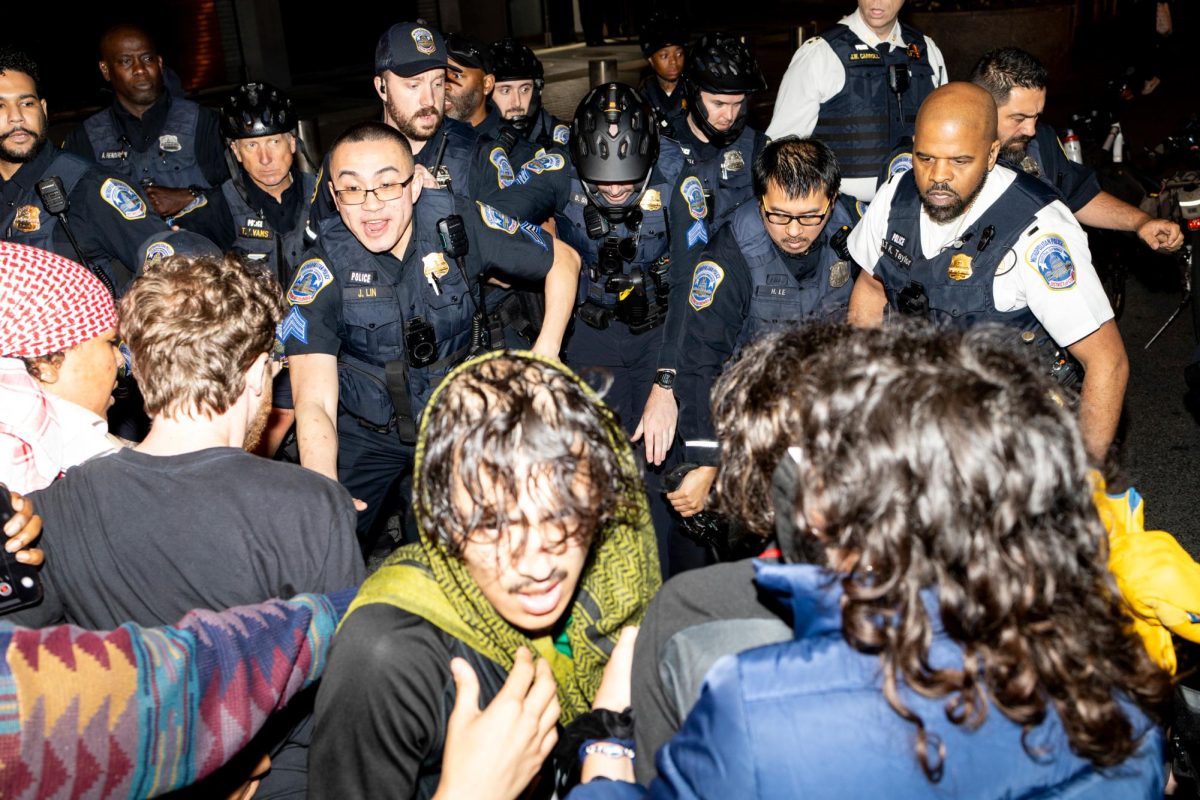The GW Law School dropped eight spots last week in the annual U.S. News & World Report ranking of the nation’s best law schools, falling from 20 to 28.
The drop is a significant setback to one of the University’s most prestigious programs. The Law School has produced notable alumni such as John Foster Dulles, J. Edgar Hoover and Senate Majority Leader Harry Reid.
In a statement, Law School Dean Fred Lawrence attributed the drop to a change in U.S. News ranking methodology, saying the school “continued to improve in many ways that cannot be measured accurately or adequately by any ranking system.”
The change Lawrence referred to was a new ranking procedure that, for the first time, included part-time students in the evaluations. In previous years, part-time students had not been evaluated at all.
But Robert Morse, director of data research for U.S. News, called Lawrence’s claim “incorrect.”
“That is not the full reason,” he said. “U.S. News has done calculations that say GW would have fallen in the rankings because of relatively weak placement data. It was a culmination of factors.”
Morse said what hurt GW the most were poor showings in the selectivity and job placement categories.
Morse justified the decision to include part-time students, saying that some schools are “gaming the system” by shuttling less impressive students into part-time programs. He said he did not think GW had been guilty of this.
“GW has a long-standing part-time program that’s been around a long time,” he said. “That comment relates to programs that have been started recently.”
In a separate ranking for part-time law schools, GW ranked second in the country, behind Georgetown.
Three of the other five schools in the top 50 law schools that have part-time programs suffered a decrease in the rankings, though none as significantly as GW.
Greg Maggs, senior associate dean for academic affairs, called the fall “an unexpected development,” but said he thinks that the school’s reputation among potential employers will not be affected.
“Our experience has been that the firms that hire GW students rely on their past record with schools and all the firms around D.C. have been hiring GW students for over 100 years,” he said, adding that most academics don’t “put much weight” on the U.S. News rankings.
Maggs said the LSAT scores of part-time students are usually one to two points lower than those of full-time students. Also, as many part-time students are older professionals, their GPAs might be lower due to grade inflation.
“Selectivity for the evening program is much different,” he said, noting that while the full-time programs draw students from across the country, part-time students tend to be people who live and work in the D.C. area. “We have a much smaller pool of people who apply to the evening program.”
Maggs did express some concern that the rankings could hurt efforts to recruit the strongest students out of college.
“College seniors might not know a lot about law schools and U.S. News is what they’re looking at,” he said.
He added, “I think the students we attract are savvy enough to realize the school didn’t change overnight, that rankings don’t change the quality of the school.”
Some students at the Law School said they were disappointed by the news.
“GW’s never going to overtake Yale or Harvard, but we can hold on to the ground we have,” said second-year law student Ryan Aggergaard. “I think the school’s still the same, but people outside the school might not know that.”
Kenny Rotter, another law student, agreed with Maggs’ feeling that the drop is more likely to hurt recruitment than employment opportunities.
“GW’s a good school, and [employers] are going to base hiring on past alums, not one year’s rankings,” he said.
Both Aggergaard and Rotter said it would be unfair to blame the part-time program for the fall.
“The career development office is horrible and really only caters to the top 10 percent of a class,” Rotter said, adding that the school had “generally poor infrastructure.”
Three blocks away, the School of Business had a different reaction to the U.S. News rankings, as their MBA program jumped from being ranked 67 to 55. Representatives from the business school did not respond to requests for comment.
Other programs that placed in the top 50 of their respective categories were the Graduate School of Education and Human Development, which placed 32nd, and the graduate program in political science, which came in at 39.







